News archive 2021

Decay on show in 'living' museum exhibit
A new exhibit in Copenhagen explores what happens when museum objects are allowed to change and decay.

Exeter launches Green Futures Scholarships
Talented students from low-to-middle-income countries will study at the University of Exeter thanks to new Green Futures Scholarships.
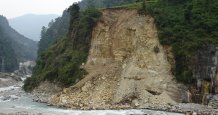
Earthquakes and extreme rainfall lead to a significant increase in the rates of landslides in Nepal
Earthquakes and extreme rainfall can lead to a six-fold increase in the rates of rainfall-triggered landslides occurring during Nepal’s monsoon season, according to new research.
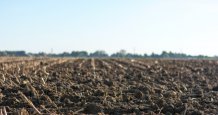
Warmer soil stores less carbon
Global warming will cause the world's soil to release carbon, new research shows.

Exeter academics on list of top researchers
Twenty-two University of Exeter academics have been named on an annual list of highly cited researchers.

Exeter researchers give COP26 verdict
University of Exeter researchers have given their views on the COP26 climate change conference.
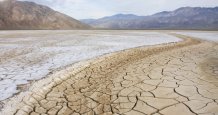
One billion face heat-stress risk from 2°C rise
The numbers of people in regions across the world affected by extreme heat stress – a potentially fatal combination of heat and humidity – could increase nearly 15-fold if the world’s temperature rise reaches 2°C.

Experts to discuss climate risk and adaptation
Climate risks and adaptation will be discussed by a panel of experts at COP26 in Glasgow.

Governments need to address inevitable risks of losses and damages from climate change, says OECD
As governments face the challenge of delivering on their net-zero by 2050 commitments, a new OECD report says they must focus in parallel on reducing and managing the inevitable risk of further losses and damages from climate change.

Green transition creates new risks and rewards
Different countries face different risks and opportunities as the world switches from fossil fuels to renewable energy, researchers say.

Peatlands can help fix our climate
Preserving and restoring peatlands can help us tackle the climate crisis, researchers say.
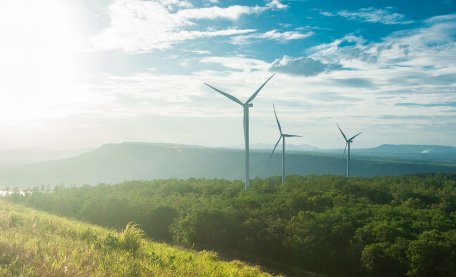
New recommendations for communicating climate change welcomed by IPCC senior figure
As the world keenly watches for progress at the UN climate conference, the foremost scientific authority on climate change has emphasised the critical importance of communicating science effectively.

Exeter scientists cycling to Glasgow for COP26
Two University of Exeter scientists are cycling to Glasgow for the COP26 UN climate change conference.

Scientists and industry to discuss energy transformation at COP26
Leading researchers and representatives of the energy sector will meet at COP26 to discuss transforming the energy system to help deal with climate change.

'Trade-offs' between wellbeing and resilience
There can be "trade-offs" between increasing human wellbeing and improving the resilience of societies and ecosystems, researchers say.
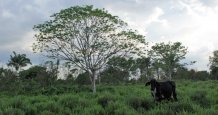
App boosts Amazon tree project
A new app will help small-scale farmers grow trees and earn a living in deforested parts of the Amazon.
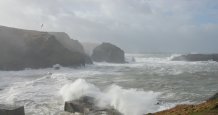
University of Exeter joins Climate Heritage Network
The University of Exeter has joined the Climate Heritage Network (CHN).

DNA reveals how ice ages affected African rainforests
Tree DNA has revealed how African rainforests responded to past climate change including ice ages, new research shows.

Devon's Climate Assembly shows the way to a net-zero future
The Devon Climate Assembly has developed and voted in support of a range of measures that if implemented would significantly cut carbon emissions across the county.

Exeter 13th on global list of climate experts
The University of Exeter is ranked 13th on a global list of experts in "climatic processes".

Artificial intelligence may be set to reveal climate change tipping points
Researchers are developing artificial intelligence that could assess climate change tipping points.
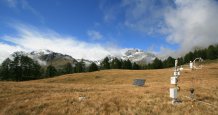
Functioning of terrestrial ecosystems governed by three main factors
Ecosystems provide multiple services for humans. However, these services depend on basic ecosystem functions which are shaped by natural conditions like climate and species composition, and human interventions.

InVEnTA launch event hosted by University of Exeter and Learning on Screen
The University of Exeter and Learning on Screen are holding an online launch event of innovative software tool InVEnTA to the academic market on Friday 22 October 2021 at 3pm.
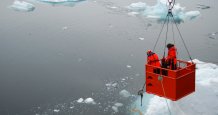
How climate change could impact algae in the global ocean
Global warming is likely to cause abrupt changes to important algal communities because of shifting biodiversity "break point" boundaries in the ocean, according to new research.

Rethink 'cost-benefit analysis' to tackle climate crisis
Policymakers need better analysis tools to help them tackle the systemic climate crisis, experts say.

Scotland’s beaver population doubles in three years, survey finds
The number of beavers in Scotland has more than doubled in the last three years, according to a new population survey.

Past abrupt climate changes provide 'early warning signals' of cascading tipping points
Past tipping points triggered cascades of global climate, ecological and societal change, researchers say.

Earth’s vital signs worsen amid business-as-usual mindset on climate change
Twenty months after declaring a climate emergency and establishing a set of vital signs for the Earth, a coalition of researchers says “unrelenting business as usual” has led to alarming results.

Major research initiative to support marine economy deal with future shocks
A new research programme will investigate and strengthen the resilience, wellbeing and sustainability of UK coastal communities.

Scientists identify five new plant species in Bolivia
Scientists have identified five new plant species in the Bolivian Andes.

Red Dead Redemption 2 teaches players about wildlife
Players of the popular game Red Dead Redemption 2 learn how to identify real American wildlife, new research shows.

Marine 'identity' could boost ocean protection
Many people are so attached to the ocean that it forms a key part of their identity, new research suggests.

Plant-based proteins among food-production positive 'tipping points'
Triggering positive "tipping points" could transform the way we produce food and use the world's land, according to a new report.

Top climate scientist tells Citizen's Assembly: 'We must act now to reduce carbon emissions'
The devastation inflicted on future generations and the environment if we don’t act to reduce carbon emissions now was laid bare at Devon’s Climate Assembly this week by one of the UK’s top climate scientists.

Cornish 'doughnut economy’ requires local action
Progress towards a fair and sustainable "doughnut economy" is happening at differing rates in different parts of Cornwall and the Isles of Scilly, according to a new report.

University of Exeter plays a leading role in latest UK Climate Change Risk Assessment
Action to improve the nation’s resilience is failing to keep pace with the impacts of a warming planet and increasing climate risks facing the UK.

Scientists warn G7 humanitarian and economic costs of breaching 1.5C will far exceed costs of achieving it
A group of world-leading climate scientists are calling on global leaders to factor in the economic, environmental and humanitarian costs of failing to keep global warming below 1.5C this century.

'Manage tourism and nature to boost both,' report says
Tourism and the natural environment can be managed in ways that benefit both, new research reports suggest.

Culture shift needed to tackle climate crisis
Tackling the climate crisis will require embracing new ways of thinking and challenging dominant social and economic practices, a new book suggests.
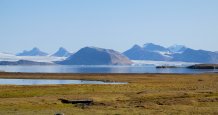
Substantial carbon dioxide emissions from northern peatlands drained for crop cultivation
A new study shows that substantial amounts of carbon dioxide were released during the last millennium because of crop cultivation on peatlands in the Northern Hemisphere.

University of Exeter to play a key role in new £20 million industrial decarbonisation centre
Researchers from the University of Exeter are involved with two projects as part of the new £20 million Industrial Decarbonisation Research and Innovation Centre (IDRIC).

Study pinpoints key causes of ocean circulation change
Researchers have identified the key factors that influence a vital pattern of ocean currents.

'Champagne' technology to capture carbon dioxide via the oceans
A new method of capturing carbon from seawater could help us tackle climate change.
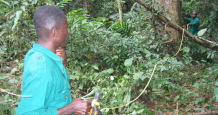
African rainforests still slowed climate change despite record heat and drought
Scientists studying the impact of record heat and drought on intact African tropical rainforests were surprised by how resilient they were to the extreme conditions during the last major El Niño event.

Few realistic scenarios left to limit global warming to 1.5°C
Of the over 400 climate scenarios assessed in the 1.5°C report by the Intergovernmental Panel on Climate Change (IPCC), only about 50 scenarios avoid significantly overshooting 1.5°C.

Antarctic ice sheet retreat could trigger chain reaction
The Antarctic ice sheet was even more unstable in the past than previously thought, and at times possibly came close to collapse, new research suggests.

New evidence of major impacts of climate change on coral reef growth
The window of opportunity to protect the structure of the world’s coral reefs is still open but time is running out, new research shows.

Warming of 3°C could cause major jump in Antarctic ice melt
Global warming of 3°C could lead to a major jump in melting of the Antarctic Ice Sheet, according to a new study.
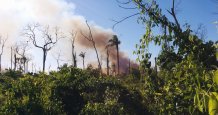
Brazilian Amazon released more carbon than it stored in 2010s
The Brazilian Amazon rainforest released more carbon than it stored over the last decade – with degradation a bigger cause than deforestation – according to new research.

Oceans may become a less efficient carbon sink
The world's oceans could soak up less carbon or even beginning emitting carbon in the future, a new UNESCO report warns.

Rock glaciers will slow Himalayan ice melt
Some Himalayan glaciers are more resilient to global warming than previously predicted, new research suggests.

Carbon uptake in regrowing Amazon forest threatened by climate and human disturbance
Large areas of forests regrowing in the Amazon to help reduce carbon dioxide in the atmosphere are being limited by climate and human activity.

Exeter alumnus to help restore natural ecosystems as part of pioneering internship
A University of Exeter graduate will help restore natural ecosystems as part of a “rewilding” internship.

Evolution of ocean 'twilight zone' creatures linked to global climate change
A team led by scientists from Cardiff University has, for the first time, been able to track the development of the largest and least understood habitat on Earth.

Survey finds beavers establishing strong presence in City of Perth
Beavers in Scotland are establishing a strong presence in Perth, according to researchers conducting the most comprehensive ever survey of the animal in Scotland.
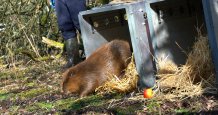
Ground-breaking beaver project launched
The Dorset Wildlife Trust has released two beavers into an enclosed site in west Dorset. This landmark project is the first of its kind for the county and welcomes beavers back to Dorset for the first time in over 400 years.
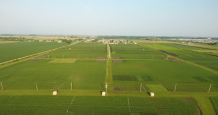
Improved model estimates impact of ozone on soy crops
The impact of ozone on soybean production can be predicted more accurately thanks to improvements to a computer modelling system.

Changing resilience of oceans to climate change
Oxygen levels in the ancient oceans were surprisingly resilient to climate change, new research suggests.

Exeter researcher awarded "frontiers of knowledge" prize for science of climate change adaptation
A University of Exeter researcher is one of three winners of this year's BBVA Foundation Frontiers of Knowledge Award.

Positive ‘tipping points’ offer hope for climate
Positive “tipping points” could spark cascading changes that accelerate action on climate change, experts say.
